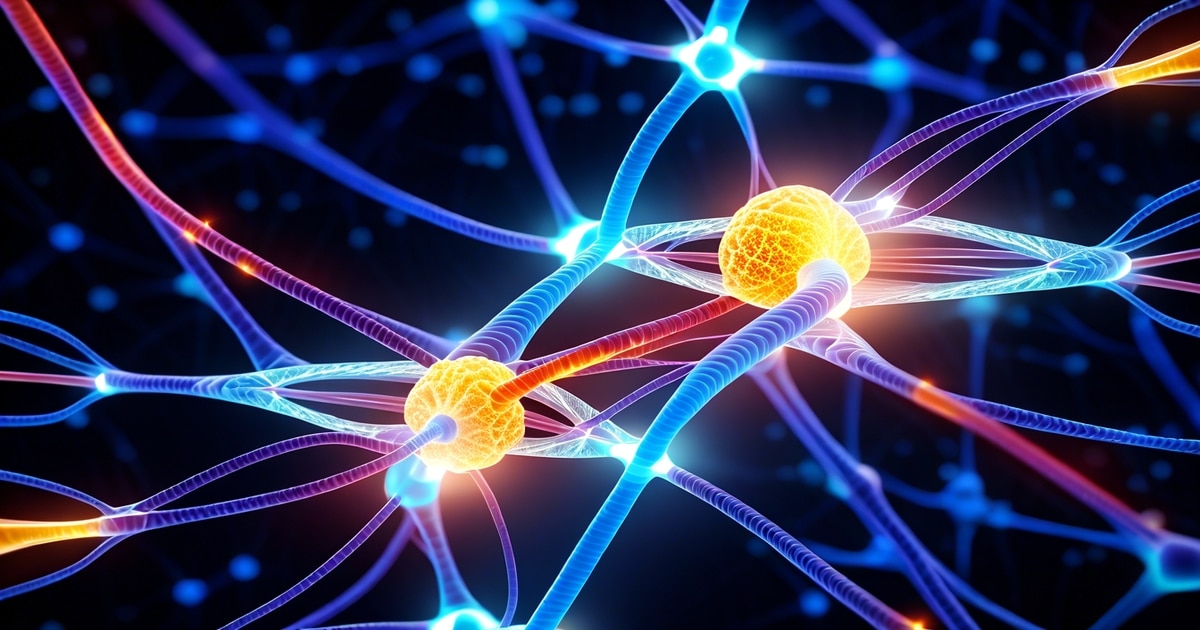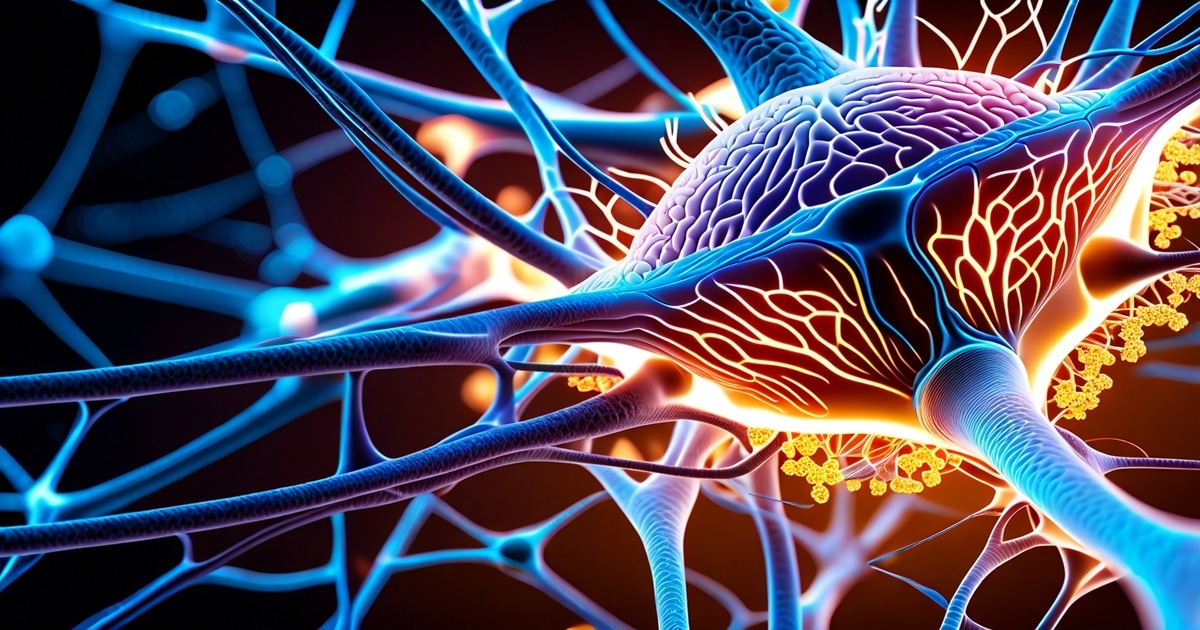Key Takeaways
-
Consider incorporating acetyl-L-carnitine as a supplement to potentially alleviate neuropathic symptoms, especially in diabetic neuropathy and drug-induced or chemotherapy-induced neuropathy.
-
Monitor the efficacy of acetyl-L-carnitine by assessing clinical symptom scores and endpoints to track improvements in painful peripheral neuropathy.
-
Be aware of the neuroprotective effects and neurotrophic factors associated with acetyl-L-carnitine, indicating its potential to support nerve health and function.
-
Prioritize safety when using acetyl-L-carnitine by understanding its adverse events profile and consulting with healthcare professionals before supplementation.
-
Meta-analysis of randomized controlled trials provides valuable insights into the effectiveness of acetyl-L-carnitine in managing neuropathic pain, supporting its use in relevant cases.
-
Stay informed about secondary outcomes linked to acetyl-L-carnitine use to fully grasp its potential benefits beyond symptom relief.
Unraveling the mystery of acetyl-l-carnitine neuropathy: a tale of relief versus discomfort. Dive into this blog post to discover how acetyl-l-carnitine can be both a soothing balm and an unwelcome guest for those battling neuropathy. We’ll explore the intricate dance between these elements, shedding light on its potential benefits and pitfalls in managing neuropathic symptoms.
Understanding Acetyl-L-Carnitine and Neuropathy
Role in Energy Production
Acetyl-L-carnitine is crucial for nerve function and energy production. It helps the body convert fat into energy, aiding overall cellular function. This compound is naturally found in the body, particularly in muscles, where it plays a vital role.
Acetyl-L-carnitine can benefit individuals experiencing neuropathy by providing support to nerve cells. By enhancing nerve function, this compound may alleviate symptoms associated with nerve damage, such as pain or numbness. For instance, studies have shown that acetyl-L-carnitine supplementation can improve nerve regeneration and reduce discomfort caused by neuropathy.
Potential Management of Neuropathy Symptoms
Individuals with neuropathy often struggle with symptoms like tingling sensations or loss of sensation due to nerve damage. Acetyl-L-carnitine has emerged as a promising option for managing these symptoms effectively. By supporting nerve health and function, this compound aids in reducing discomfort and improving the overall quality of life for those affected by neuropathy.
-
Pros:
-
Supports nerve function
-
Aids energy production
-
-
Cons:
-
May not work for everyone
-
Acetyl-L-Carnitine in Diabetic Neuropathy
Benefits of Acetyl-L-Carnitine
Acetyl-L-carnitine is believed to be beneficial for individuals with diabetic neuropathy. Studies have shown that it can help alleviate pain and enhance nerve function in the feet and legs. By taking acetyl-L-carnitine supplements, individuals may experience reduced discomfort associated with diabetic neuropathy. This supplement might improve overall nerve health and functioning.
-
Alleviates pain related to diabetic neuropathy
-
Enhances nerve function in affected areas
-
Reduces discomfort caused by nerve damage
Antioxidant Properties
Another significant aspect of acetyl-L-carnitine is its antioxidant properties. These properties are essential as they help protect nerves from damage due to high blood sugar levels commonly seen in diabetes. By acting as an antioxidant, acetyl-L-carnitine shields the nerves from harm caused by oxidative stress resulting from elevated blood sugar levels.
-
Acts as an antioxidant against nerve damage
-
Protects nerves from oxidative stress due to high blood sugar levels
-
Guards against damage caused by increased glucose levels
Drug-Induced and Chemotherapy-Induced Neuropathy Relief
Acetyl-L-Carnitine for Symptom Alleviation
Acetyl-L-carnitine supplementation has shown promise in relieving symptoms of peripheral neuropathy induced by certain medications and chemotherapy drugs. Research suggests that acetyl-L-carnitine may help reduce the pain, numbness, tingling, and other discomfort associated with drug-induced neuropathy. The neuroprotective properties of acetyl-L-carnitine are believed to play a crucial role in alleviating nerve damage caused by these treatments.
-
Pros:
-
Alleviates symptoms like pain and numbness
-
Neuroprotective effects may help mitigate nerve damage.
-
-
Cons:
-
Effectiveness may vary from person to person
-
Mechanism of Action
When individuals undergo chemotherapy or take specific medications, they might experience uncomfortable peripheral neuropathy symptoms. Acetyl-L-carnitine is thought to work by protecting nerves from damage caused by these treatments. By enhancing cellular energy production and acting as an antioxidant, acetyl-L-carnitine can reduce the severity of neuropathic symptoms.
-
Cellular energy production is boosted.
-
Antioxidant properties aid in symptom reduction
Secondary Outcomes of Acetyl-L-Carnitine Use
Cognitive Function Improvement
Acetyl-L-carnitine supplementation doesn’t just help with neuropathy symptoms; it can also boost cognitive function. Studies reveal that this supplement may enhance memory in individuals experiencing age-related cognitive decline. For those struggling with mental clarity, acetyl-L-carnitine could offer a potential solution.
-
Boosts cognitive function
-
Enhances memory in aging individuals
Cardiovascular Health and Exercise Performance Benefits
Apart from its effects on neuropathy and cognition, acetyl-L-carnitine has been studied for its positive impacts on cardiovascular health and exercise performance. This supplement shows promise in supporting heart health by reducing inflammation and improving blood flow. Furthermore, athletes or fitness enthusiasts might benefit from improved exercise endurance when taking acetyl-L-carnitine.
-
Supports cardiovascular health
-
Enhances exercise performance
Meta-analysis of RCTs in Painful Peripheral Neuropathy

Efficacy of Acetyl-L-Carnitine
Acetyl-L-carnitine has been shown to reduce pain in individuals with neuropathy effectively. A meta-analysis of randomized controlled trials (RCTs) found that supplementation with acetyl-L-carnitine led to significant improvements in pain scores compared to a placebo. The results indicate that acetyl-L-carnitine can be a valuable treatment option for those suffering from painful peripheral neuropathy.
-
Studies demonstrate the effectiveness of acetyl-L-carnitine in reducing pain associated with peripheral neuropathy.
-
Significant improvements were observed in pain scores among individuals who received acetyl-L-carnitine supplements compared to those who took a placebo.
Treatment Option for Neuropathic Pain
For individuals experiencing painful peripheral neuropathy, incorporating acetyl-L-carnitine into their treatment regimen could alleviate their symptoms and improve their quality of life. By targeting the underlying mechanisms contributing to nerve damage, acetyl-L-carnitine offers a promising approach to managing neuropathic pain.
-
Acetyl-l-carnitine may serve as an effective treatment option for alleviating painful symptoms associated with peripheral neuropathy.
-
The supplementation of acetylcysteines has shown promise in addressing the root causes of nerve damage, thereby offering relief from neuropathic pain.
Efficacy Endpoint and Clinical Symptoms Score
Efficacy Endpoint
In clinical trials, the efficacy endpoint serves as the specific measurement used to determine how effective a treatment is. For acetyl-L-carnitine in neuropathy studies, this endpoint commonly focuses on changes in pain intensity, nerve conduction velocity, and other symptoms related to neuropathy. By analyzing these factors before and after treatment, researchers can gauge the effectiveness of acetyl-L-carnitine in managing neuropathic symptoms.
Acetyl-L-carnitine’s efficacy endpoint provides valuable insights into how well the supplement addresses neuropathy-related issues. By tracking improvements in pain levels or nerve function, healthcare providers can better understand the impact of acetyl-L-carnitine on patients’ overall well-being. This data helps establish a clear link between treatment with acetyl-L-carnitine and symptom relief for individuals experiencing peripheral neuropathy.
Clinical Symptoms Score
The clinical symptoms score acts as a standardized tool to assess the frequency and severity of neuropathy symptoms throughout treatment with acetyl-L-carnitine. Before starting supplementation, individuals undergo an evaluation using this scoring system to establish a baseline for their symptoms. Following treatment, another assessment is conducted to compare any changes observed post-treatment.
Using a clinical symptoms score enables healthcare professionals to quantify improvements accurately by assigning numerical values to different aspects of neuropathic symptoms, such as pain level or sensory disturbances. This structured approach aids in objectively measuring the effectiveness of acetyl-L-carnitine intervention in alleviating various manifestations of peripheral neuropathy.
Adverse Events and Safety Profile

Minimal Adverse Events
Acetyl-L-carnitine neuropathy treatment is known for its minimal adverse events. Users generally experience few negative effects when taking this supplement. Reported incidents are rare, with most individuals tolerating the treatment well.
-
Pros:
-
Well-tolerated
-
Rare side effects
-
Common Side Effects
The most common side effects of acetyl-L-carnitine supplementation include mild gastrointestinal discomfort and nausea. These symptoms are typically temporary and tend to subside as the body adjusts to the supplement.
-
Cons:
-
Mild gastrointestinal discomfort
-
Nausea
-
It’s crucial to prioritize your health by consulting a healthcare professional before incorporating new supplements into your routine, especially if you have existing medical conditions or are taking other medications. This step ensures you receive personalized advice tailored to your specific health needs.
Neuroprotective Effects and Neurotrophic Factors
Nerve Cell Survival and Regeneration
Acetyl-L-carnitine is crucial in promoting nerve cell survival and aiding in their regeneration. This compound acts as a shield, safeguarding nerve cells from damage and supporting their recovery when injured. By doing so, it helps maintain the integrity of the nervous system.
-
Promotes nerve cell survival
-
Aids in nerve regeneration
Production of Neurotrophic Factors
One key benefit of acetyl-L-carnitine is its ability to boost the production of neurotrophic factors, essential proteins that nurture nerve cells by facilitating their growth and maintenance. These factors are like fertilizers for neurons, ensuring they stay healthy and function optimally.
-
Boosts neurotrophic factor production
-
Supports growth and maintenance of nerve cells
Closing Thoughts
You’ve delved into the world of acetyl-L-carnitine and neuropathy, uncovering its potential in diabetic, drug-induced, and chemotherapy-induced neuropathies. The meta-analysis showed its efficacy in managing painful peripheral neuropathy, showcasing promising results. From neuroprotective effects to clinical symptom scores, acetyl-L-carnitine emerges as a multifaceted ally in the battle against neuropathic pain.
As you navigate potential treatments for neuropathy, consider the comprehensive benefits acetyl-L-carnitine may offer. Its safety profile and neurotrophic factors make it a compelling option worth exploring. Embrace this newfound knowledge and empower yourself to make informed decisions about your health. Dive deeper into acetyl-L-carnitine and pave the way for a brighter, pain-free future.
Frequently Asked Questions
Is Acetyl-L-Carnitine effective for treating neuropathy?
Acetyl-L-Carnitine has shown effectiveness in managing neuropathy symptoms, especially in diabetic and drug-induced cases. Research supports its role in improving nerve function and reducing pain associated with neuropathic conditions.
Can acetyl-L-carnitine be used to relieve chemotherapy-induced neuropathy?
Yes, Acetyl-L-Carnitine has demonstrated potential in providing relief for chemotherapy-induced neuropathy. Studies suggest that it may help alleviate nerve damage caused by certain chemotherapeutic agents, offering a promising option for patients experiencing this type of neuropathy.
What are the neuroprotective effects of Acetyl-L-Carnitine?
Acetyl-L-Carnitine exhibits neuroprotective properties by supporting nerve cell health and function. It can help protect against oxidative stress, enhance mitochondrial function, and promote the production of essential neurotrophic factors crucial for maintaining optimal nervous system health.
Are there any safety concerns or adverse events associated with using acetyl-L-carnitine?
Generally well-tolerated, acetyl-L-carnitine may cause mild gastrointestinal discomfort at higher doses. It is advisable to consult healthcare providers before starting supplementation, especially if you have pre-existing medical conditions or are taking other medications to prevent any potential interactions or side effects.
How does Meta-analysis support the use of acetyl-L-carnitine in painful peripheral neuropathy?
Meta-analyses pooling data from randomized controlled trials (RCTs) have indicated that acetyl-L-carnitine can significantly reduce pain levels and improve clinical symptoms of painful peripheral neuropathy. This comprehensive analysis provides strong evidence supporting its efficacy in managing this condition.

